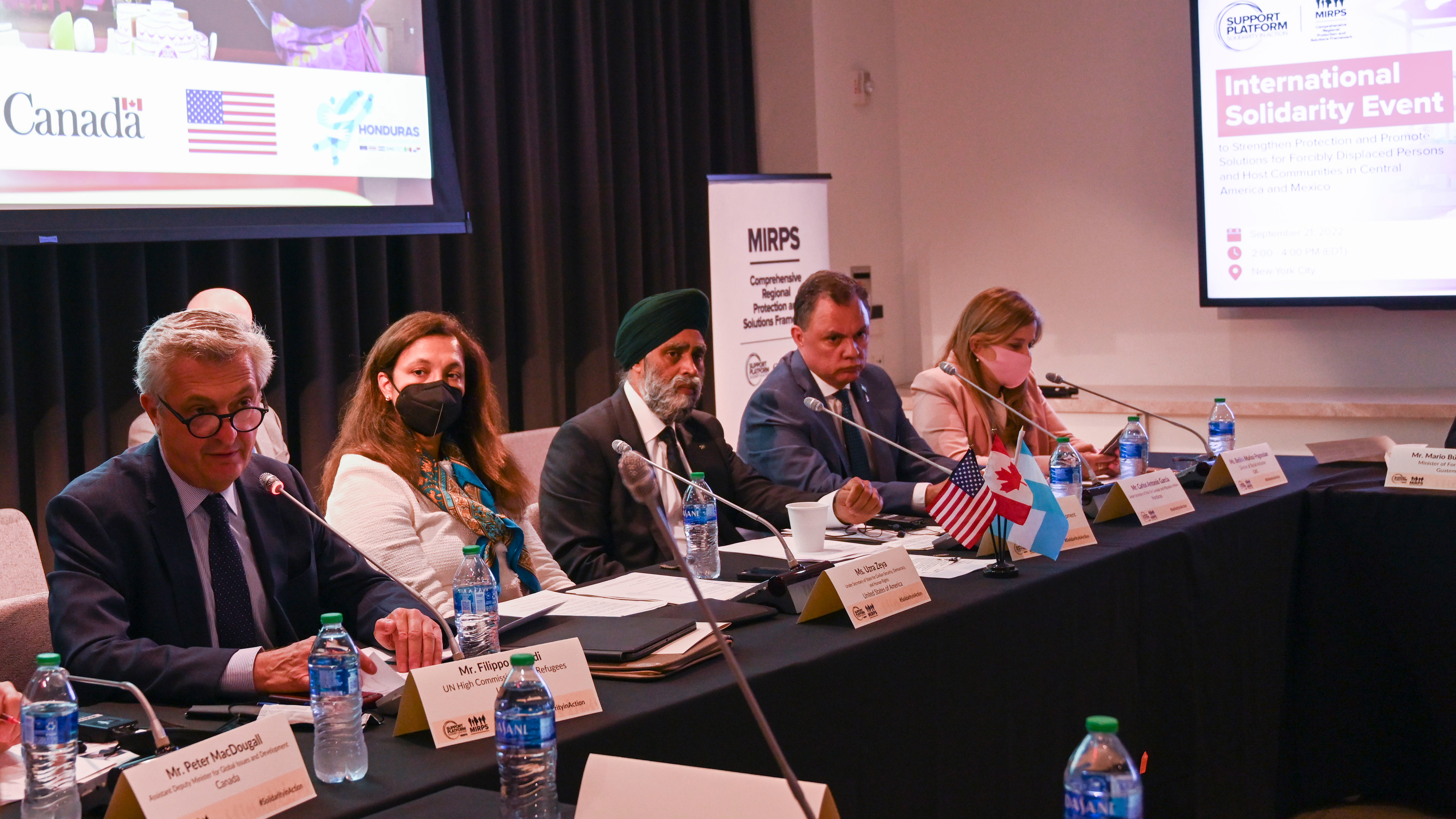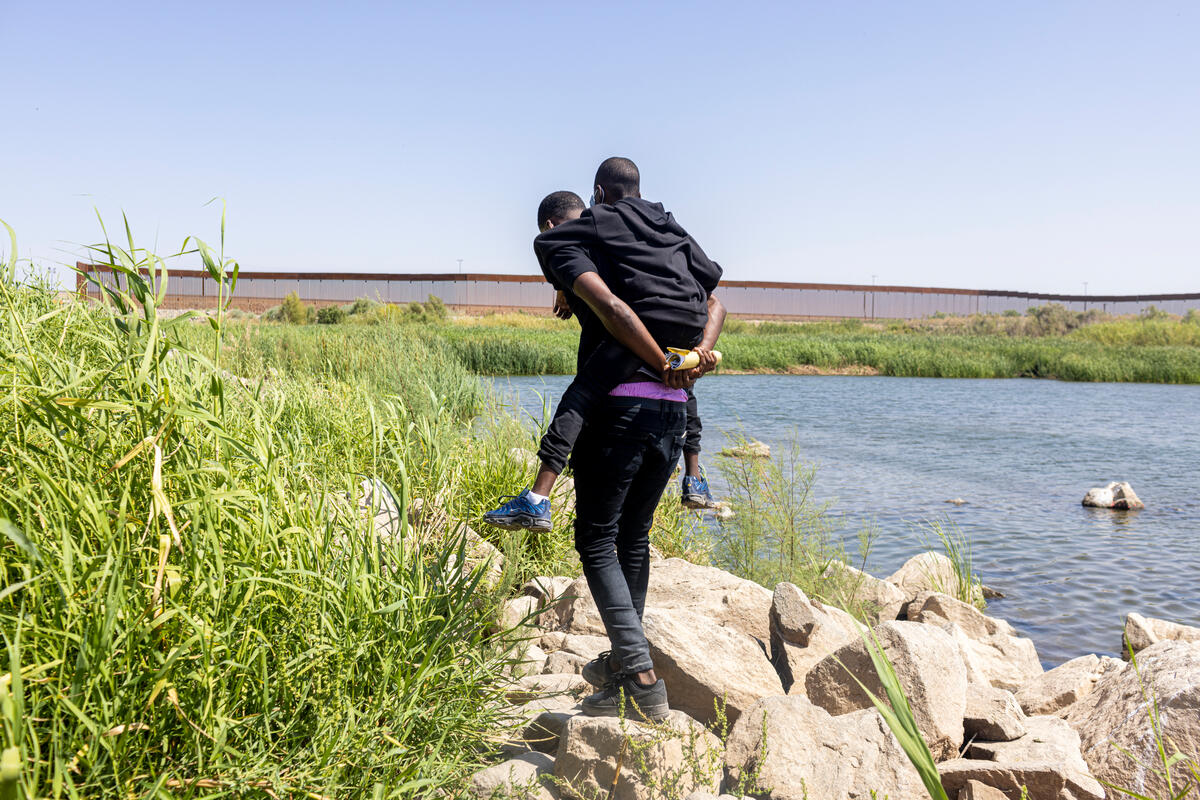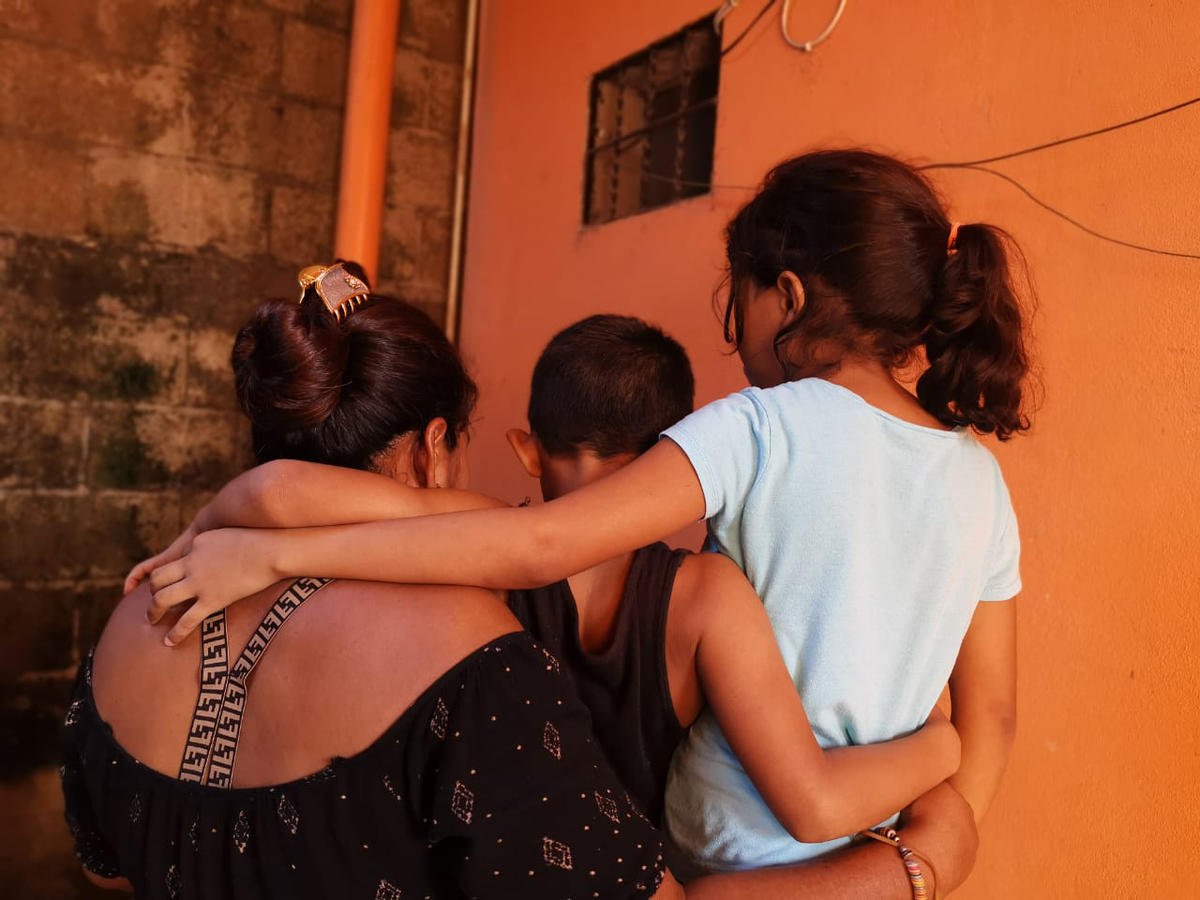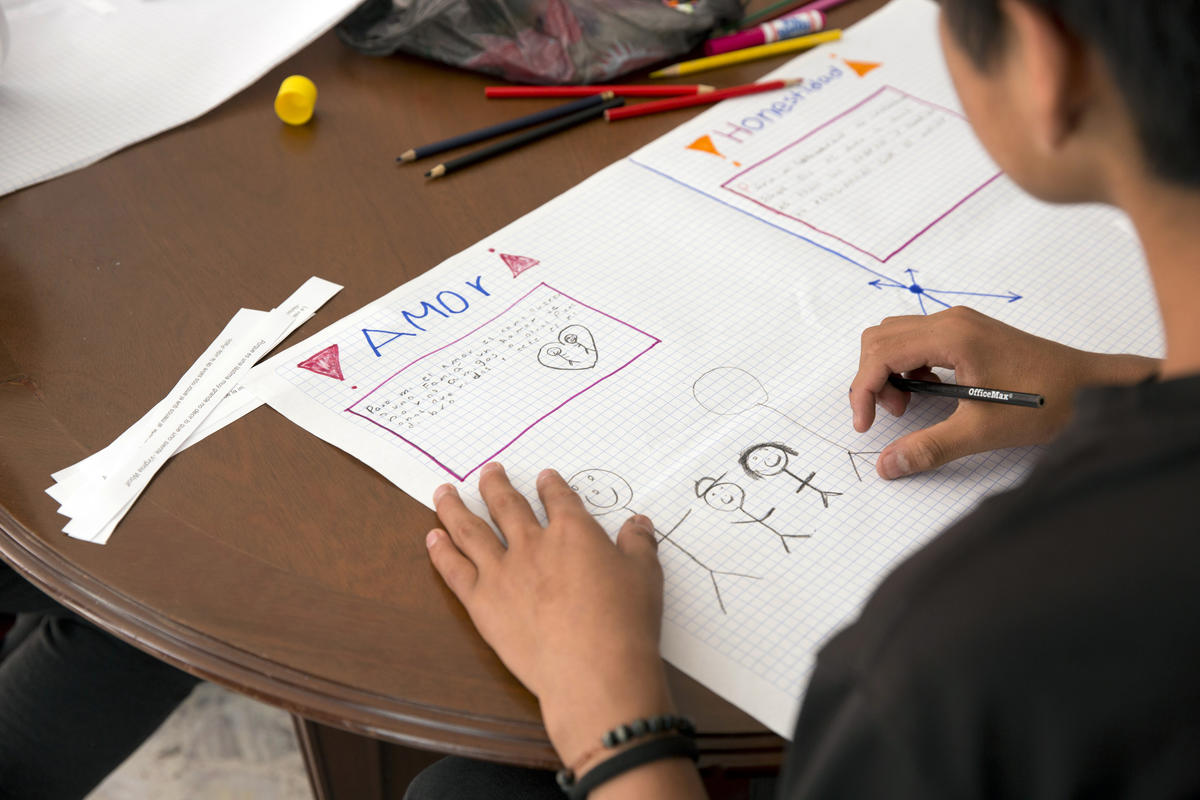On the verge of retirement, UNHCR veteran returns to where it all began
On the verge of retirement, UNHCR veteran returns to where it all began

PANAMA CITY, Panama, March 31 (UNHCR) - Serge Malé's long and eventful career with UNHCR began in 1985, when he was sent to run a small sub-office in the western Honduran town of San Marcos. It was the height of the civil war in neighbouring El Salvador.
The young medical doctor from southern France spent some three years helping to look after thousands of Salvadorean refugees, who had fled the vicious conflict in their country and found refuge in the camps of La Virtud and Mesa Grande.
But in October 1987, a group of 1,464 of the refugees decided that they wanted to return to their homeland, even though the war was not yet over. Malé was in charge of the return convoy as it headed through the mountainous border terrain.
"At one point, we had to stop in the middle of nowhere because a huge stone was blocking the track," recalled Malé. "Since there was no way for the 32 buses and 12 trucks to go beyond this point, the returnees calmly proceeded to unload all their personal belongings," he said, adding that they decided to settle in the spot, which was called Guarjila.
Fast forward to February this year and Malé was back in Guarjila for an emotional reunion after a wealth of adventures in tough locations around the world. This time he was deputy director of UNHCR's Americas Bureau and on the verge of retirement. (His last day for the refugee organization is today).
"It was one of those rare moments in life when you mix the past with nostalgia and the present with hope, when you remember everything that is really meaningful," Malé mused from his office in Panama City, while referring to the returnees of Guarjila as symbolic of the durable solutions that UNHCR seeks for all of the refugees that it cares for.
When they returned in 1987, the civil war had five more years to run, and UNHCR did not consider the conditions in that part of El Salvador to be sufficient to allow the returnees to live in safety and dignity. Indeed, they suffered from repeated harassment during those years, but the people of Guarjila never lost the courage and resilience to stay on, and to move on with their lives.
And, as Malé discovered, they have created an enduring and a thriving community where people have respect for each other and for the law. Although the refugees built Guarjila from scratch in a harsh environment, the village is close to their areas of origin.
Malé described the settlement as "the fruit of all their sweat, tears, pain and determination." The people of Guarjila proudly told him that 95 per cent of the population have their own house, while all their children go to school. They have also built streets, a church, a park and a health centre.
And they don't forget those who helped them. A small museum is named after the late Father Jon Cortina, a Spanish Jesuit priest who worked tirelessly on behalf of the poor and oppressed in El Salvador. Fr. Cortina had accompanied the UNHCR convoy to Guarjila in 1987, two years before he narrowly escaped a massacre of Jesuits priests in El Salvador.
Today, violence in Guarjila is rare, with just one murder in the past 23 years. Among the young, meanwhile, some dream of migrating overseas while others are committed to building up the community.
They take their lead and their lessons from the older generation, while using 21st Century tools such as mobile phones and the internet. The youngsters even have their own radio station, but they run meetings in the same way that their parents did while living across the border in La Virtud and Mesa Grande camps.
"They do not talk about infrastructural development, but of human and social development," said an impressed Malé. During the war, their main challenge was to stay alive and together. Today, the main debates focus on a mining project and the proposed construction of a road through the settlement. There are arguments for and against, but at least there is free debate on the issues.
Every year on October 12, the community of Guarjila has a big party to celebrate their return to El Salvador. "They are still convinced they made the right choice at the right time and settled in the right place," said Malé, who was clearly proud to have played a small role in their drama.








